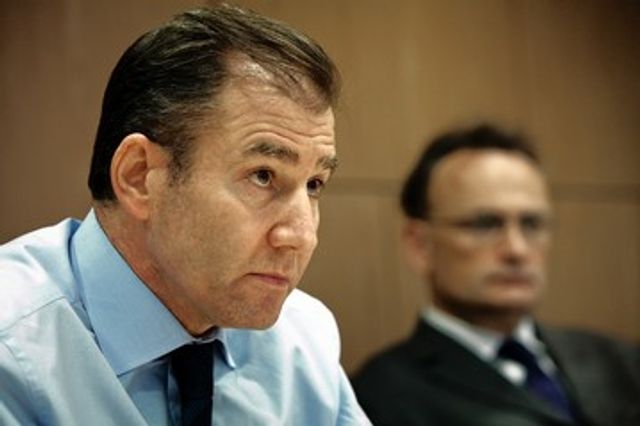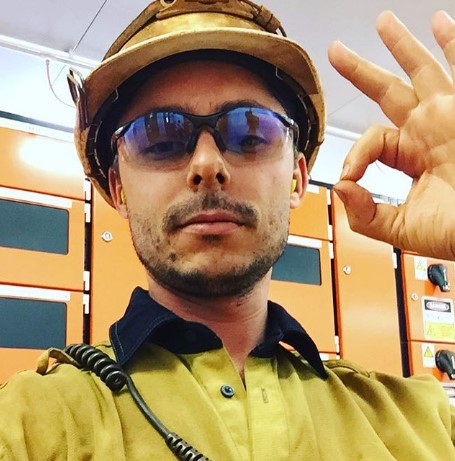Are you OK?

The pressures being felt in the mining industry are no longer fear-driven, but just as likely to lead to burnout.
Around this time last year I wrote words to the effect:
“Throughout this past year, I have seen so much stress, exhaustion and in some cases fear, on the faces of many mining company executives.”
I also wrote:
“This was almost certainly borne out of an extended period of time playing a defensive game.”
There’s a link to the full article here. But the important point to note is things have changed.
The general tone of the industry is no longer one of defence, but one of the extreme busyness associated with having to do a lot with limited resources. We’re in a period where most forward thinking mining executives know that the next few years are likely to be far more expansionary than the immediate past few years.
A small number of these optimistic, future-thinking mining executives will inherit the industry and its best projects and are working very hard now to get their projects ready for when conditions permit.
This is good. However, workforces are small and project teams have been cut to the bone. The small, optimistic few are doing a lot of groundwork themselves. The pressures being felt are no longer fear-driven, but are pressures none-the-less. They are just as likely to have people quite quickly head towards burnout.
Previously we spent a considerable period in a crisis management phase, defending mining and mining services companies from failure. This is a more obvious enemy to fight and it is more likely that people around you will keep an eye out for each other as everyone can see the visible danger at hand.
Mining projects and company-building, though, creates a naturally more positive and optimistic environment — that idea that ‘we’re building something special’ — and so the pressures are created by overwork and doing too much with too little - not to mention the external pressure that comes to bear from the market, shareholders and various interest groups. Many want to have their say but not all understand the nuances of running or starting a mining operation. Again, that creates more pressure on boards and executives. As a result it is often easily overlooked that people can just as quickly hurtle towards the same stress-induced burnout.
I was reminded of this in the past week when attending the MPi Executive team’s very first boardroom forum lunch, to an invitation-only group of mining industry chairmen, directors and chief executives. We had an excellent speaker and confidential peer discussions around the topic ‘effective boards in challenging times’.
While the topic was about defending a mining company from a likely financial collapse and its eventual rescue, the excellent facilitator reminded me that even boards of directors could do well to look out for their work mates and occasionally ask, “Are you OK?”

Photo source Mining People International Instagram user @that.fifomum
Coincidentally, the same week I was referred to an article on this topic, Beating Burnout, by Monique Valcour, in the November 2016 edition of the Harvard Business Review. You can read it here
The article spells out:
- The development of burnout
- How to recognise it
- The stages it works through
- Strategies to get through once it’s recognised
What the MPi Board Room Forum reminded me, though, was that this is all fine, but it relies on you recognizing that something is not right and then being willing to take action yourself.
Too often you won’t recognise the trouble you’re in!
Sadly many people don’t recognise their own symptoms and, even if they do, they will be too afraid, embarrassed, or unaware of what can be done to seek help — or to even begin the process of moving through what many senior executives have described as very dark, lonely periods in their life.
Having workmates around you at any level in a company (board-level included) that take time to notice changes in behaviour and then take the next step of asking, “How are you?” is often all it takes to head off a much bigger issue.
Let me state for the record that I do not believe that Glencore chief executive Ivan Glasenberg (that’s his him in the picture at the top of this article), as head of one of the world’s largest commodity trading and mining companies, is in any way in need of my advice — or indeed the emotional support I refer to in this article.
I do not know him.
What I do know is that my remote impression of him is of a person at the top of his game: confident, strong-willed, independent and smart. While Glasenberg may not need this help, I am quite sure there are many people with these positive traits, who do.
And so I use his image to make the point that it is often the seemingly stronger people you know who may be most in need of help, but whom are more likely to be overlooked because of their strong exterior.
No matter how experienced or successful, there is something here for us all to keep in mind as this VUCA (volatility, uncertainty, complexity, and ambiguity) mining game inevitably gets hotter. Here is more about managing VUCA, once again from the Harvard Business Review.
So as we head into the Christmas and New Year period and the inevitable reflections the season causes people to dwell on, ask someone, “Are you OK?”
